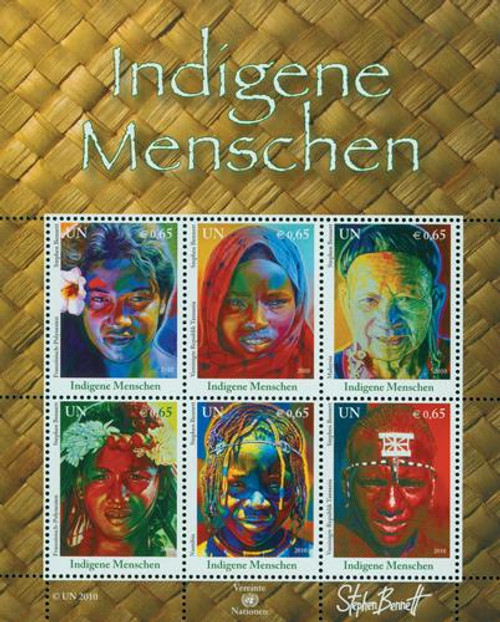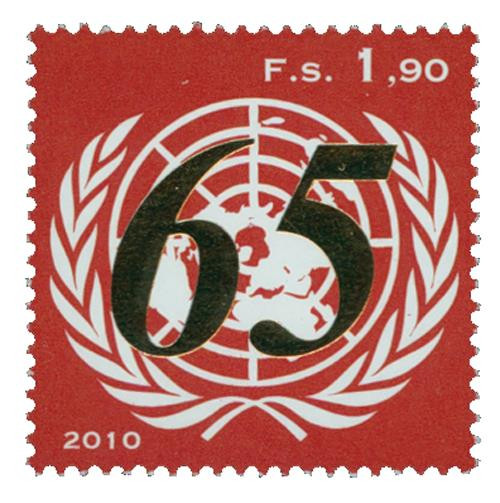
2010 United Nations Indigenous Peoples
# UNV480 - 2010 United Nations Indigenous Peoples
$18.95
Indigenous People
The U.N. continued its Indigenous People stamp series in 2010 with three sheets issued from each of the offices in New York, Geneva, and Vienna. Indigenous people are ethnic groups who inhabit a geographic region with which they have the earliest-known connection.
Indigenous people are increasingly threatened by the rapid industrialization of neighboring regions. “The loss of irreplaceable cultural practices and means of artistic expression makes us all poorer, wherever our roots may lie,” said U.N. Secretary-General Ban Ki-moon.
In 2007, the United Nations adopted the Declaration of the Rights of Indigenous Peoples, giving the most comprehensive protection to date for the rights of indigenous populations. The statement was first explored in 1982, and debated for more than 20 years before adoption. More than 370 million indigenous people fall into this category, and represent some of the poorest and most oppressed societies in the world. They have few resources to defend their rights from more technologically advanced societies.
Indigenous People
The U.N. continued its Indigenous People stamp series in 2010 with three sheets issued from each of the offices in New York, Geneva, and Vienna. Indigenous people are ethnic groups who inhabit a geographic region with which they have the earliest-known connection.
Indigenous people are increasingly threatened by the rapid industrialization of neighboring regions. “The loss of irreplaceable cultural practices and means of artistic expression makes us all poorer, wherever our roots may lie,” said U.N. Secretary-General Ban Ki-moon.
In 2007, the United Nations adopted the Declaration of the Rights of Indigenous Peoples, giving the most comprehensive protection to date for the rights of indigenous populations. The statement was first explored in 1982, and debated for more than 20 years before adoption. More than 370 million indigenous people fall into this category, and represent some of the poorest and most oppressed societies in the world. They have few resources to defend their rights from more technologically advanced societies.











